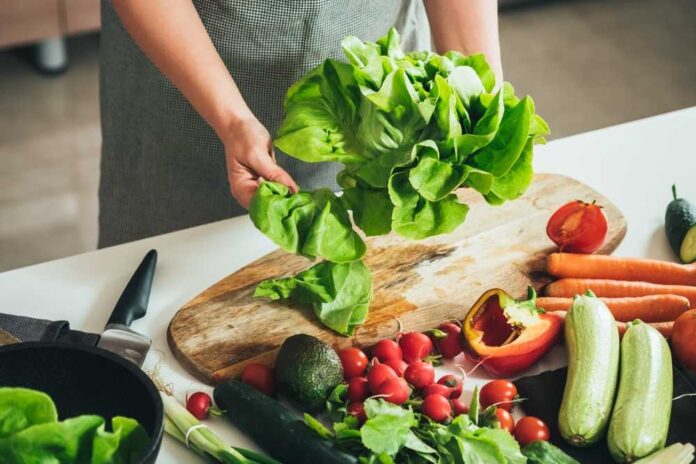
When it comes to your health and lifespan, some things are beyond your control. For example, you can’t choose your parents or your genetic predisposition to certain diseases.
But there are many things you can control. In fact, lifestyle and dietary choices greatly impact how long—and how well—you live.
Here are seven nutrition tips that can help you live a longer and healthier life.
Eat More Plants
Plant-based foods are an important source of fiber, vitamins, minerals, healthy fats, and antioxidants.
Fruits, vegetables, whole grains, beans, nuts, and seeds all tend to be nutritionally dense, meaning they’re packed with nutrients but relatively low in calories.
Plant-based diets prioritizing whole, unprocessed foods have been linked with a lower risk of chronic diseases, such as heart disease, diabetes, and certain cancers. And by reducing your disease risk, you’re also likely to live longer.
Eat Less Processed Foods
Processed foods like frozen meals, chips, crackers, and sweets are often high in calories, unhealthy fats, added sugars, and sodium. They also tend to be low in important nutrients like fiber, vitamins, and minerals.
Eating too many processed foods can lead to weight gain, high blood pressure, and many other chronic health problems. Limit your intake of processed foods and focus on eating more whole, unprocessed foods instead.
Cook Meals At Home
Restaurant meals tend to be significantly less healthy than home-cooked meals. They’re often higher in calories, unhealthy fats, added sugars, and sodium.
Cooking at home gives you more control over the ingredients in your food and allows you to make healthier choices.
Even if you aren’t a great cook, making an effort to eat out less and cook more meals at home can significantly impact your health.
Stop Drinking Soda and Sugary Beverages
Soda, juices, and soft drinks are closely linked to higher rates of obesity, metabolic syndrome, and type 2 diabetes. They also contribute to tooth decay and provide little nutritional value.
Even diet sodas aren’t a good choice, as they’re often loaded with artificial sweeteners that can negatively affect your health.
Instead, unsweetened tea, coffee, or water are much better options.
Spend More Time Chewing Before Swallowing
Chewing is an important part of the digestive process. It breaks open the cell walls of your food, allowing your body to better access and absorb its nutrients.
Don’t rush through your meals, swallowing big chunks of food. Instead, take the time to chew each bite into a smooth paste before swallowing—put down your fork between bites if you need help slowing down.
This can also help reduce heartburn and acid reflux. Swallowing bigger chunks of food can stretch, weaken, and damage the sphincter between your esophagus and your stomach. This can allow stomach acids to flow back up into your esophagus, causing irritation.
Take a Break From Snacking
Mindless snacking throughout the day can easily lead to weight gain and obesity-related chronic diseases.
Snacking can also prevent your digestive system from fully processing your food, as it’s constantly starting over with each new bit of food.
Diet programs like intermittent fasting focus on expanding the amount of time between eating periods, which allows your body to digest your food thoroughly.
Eat Mindfully
Mindful eating means being present in the moment while you are eating.
Be aware of the full sensory experience of eating—the taste, smell, texture, and appearance of your food.
Don’t just quickly and mindlessly shovel food into your mouth. Make an extra effort to taste the food fully and savor each bite.
This also means being aware of your hunger and fullness cues. Are you actually hungry, or are you eating out of boredom, stress, or habit?
Focus on enjoying your food and the company you’re with without being distracted by things that aren’t as important.






















